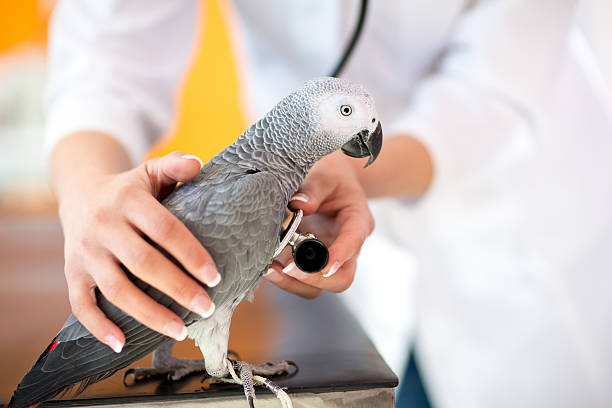One of our most concerning topics is keeping our parrots safe. There seems to be a growing awareness of many unsafe pet store toys on the market, so here is a list of the types of things you want to be aware of when choosing a toy for your parrot. Be aware that the size of your parrot plays a large factor in this decision. Many toys are made overseas, and there doesn’t seem to be much interest in their safety factor.
Toys that have any other metal besides stainless steel should be eliminated. Metals ingested by your bird of even the smallest shavings can give them metal poisoning. A parakeet swinging on a metal bell will probably not be affected, however a metal bell given to a cockatoo or a macaw can be deadly. Swallowing the metal clapper inside the bell or chewing on the bell itself can cause metal poisoning.
Here are items we should be careful to consider:
Toy Size: Make sure the size of your toy is appropriate to your bird. Toys that are too easily destroyed can be harmful to larger birds. Your bird should not be able to fit its head into anything small enough to become caught in. Toenails and toes can also be caught. Be careful of fraying rope ends.
Metal: Metal bells, chains and the clasps that attach a toy to the cage can be harmful. Birds can get their feet or beaks caught in the clasps. Many metals in toys from overseas contain lead or zinc, which can make your bird sick or can be deadly to your bird if ingested. Replace the clasps with zip ties or safe vegetable tanned leather strips. Chain links should be completely closed to avoid nails or toes being caught.
Cloth and Cozy Huts: Cozy huts are loved by many birds but if they chew on them the small cloth fibers can become impacted in their crop or gizzard. There are operations done daily by avian veterinarians to remove fibers, and can be very costly or deadly to your parrot. Coverings for bird cages can also cause injury. If you notice chew areas on the fabric, think about changing the area where your bird is kept and not covering the cage, or find a bird cover your bird will not chew.
Treated Wood: Be careful when choosing toys that may not be bird safe. Wood from unreliable sources may be chemically treated to retard rot or water and can have toxic properties absorbed into the wood or on the surface that your parrot may ingest.
Brittle Plastics: Choose the right type of plastic toys for the size of your birds. Plastics that are brittle and are easily destroyed may end up hurting your parrot if a sharp piece is swallowed. Use plastic toys that are harder to chew and will shave off in small bits if chewed.
Rope: Your bird can easily get a foot or head tangled in rope, threads and strings. Even cotton rope that ends up fraying can harm your bird if they are tangled in it. Replace with zip-ties or leather strips. Be sure to inspect your cage daily and trim or tie loose rope into firm knots.
Glue or paint: Avoid toys that have glue or paint. Vegetable dyed wood is fine if you can identify that they are safe.
Used Toys: Don’t buy your toys from an unreliable source. The PBFD virus can survive on surfaces for months. If you are buying toys for your birds, be sure they are not from a person who is reselling their bird’s toys and may be coming from an environment that contains sick birds.
PVC: This material is toxic when ingested. Toy companies have discontinued many baby toys that use polyvinyl chloride, which could even be found in products specifically made for babies, such as teethers. If you have bought children's toys for your birds, make sure they do not contain PVC
Ultimately we need to be constantly checking our bird’s cages on a daily basis. Be looking for dirty water, perches, and toys. If something has become unsafe, remove it.




